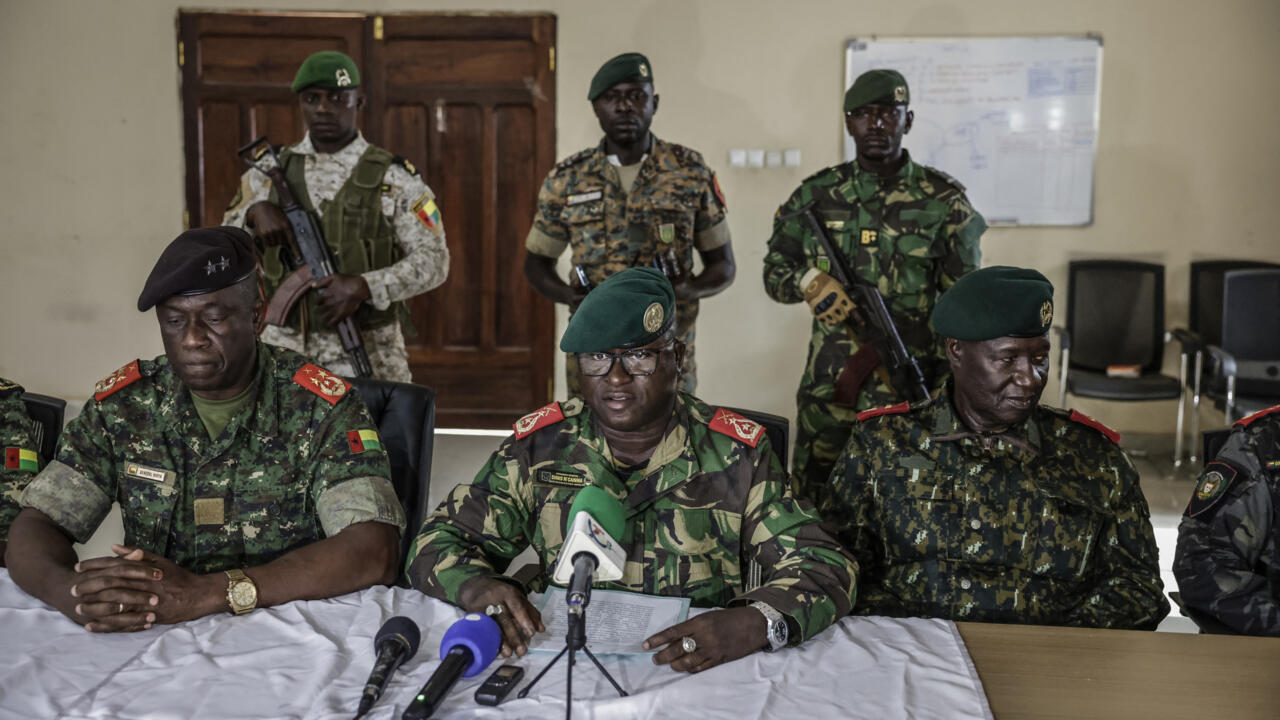
Military Takes Control in Guinea Bissau After Disputed Election in Fresh Coup d’État

Guinea-Bissau has been thrown into fresh political chaos after the military launched a coup, arrested President Umaro Sissoco Embalo, and shut down the country’s democratic institutions. Soldiers took control of key sites in the capital on Wednesday morning, sealed borders and suspended the entire electoral process.
Heavy gunfire echoed through Bissau as troops surrounded the presidential palace, the electoral commission and several ministries. Soldiers blocked major roads and restricted movement across the city. State television later broadcast a statement by a group of officers who announced that the armed forces had taken complete control of the country.
The soldiers declared that all political institutions were suspended. The decision includes the electoral commission, which was in the middle of releasing results from the highly contested November 23 election. The military also announced a nationwide curfew and ordered media houses to halt broadcasts until further notice.
President Embalo confirmed that he was detained inside the presidential palace shortly after midday. According to him, no physical force was used during the arrest, but he described the event as an apparent coup aimed at removing him from power. Several top officials were also taken into custody, including the chief of staff of the armed forces, his deputy and the interior minister.
A Crisis Rooted in a Contested Election
The coup unfolded against the backdrop of a tense and disputed election. Both President Embalo and the leading opposition candidate, Fernando Dias da Costa, had declared victory before official results were released. Opposition groups accused the government of manipulating the process, and critics argued that the poll lacked credibility due to the exclusion of key political parties and the history of dissolved parliaments under Embalo’s rule.
Guinea-Bissau has struggled with political instability for decades. The small West African nation has experienced numerous coups and attempted coups since gaining independence from Portugal in 1974. This latest takeover fits into a long pattern of military intervention in the country’s politics.
The Military’s Justification
In their statement, the officers claimed that the takeover was necessary to prevent what they described as a plot involving politicians, criminal networks and foreign actors. According to them, this alleged conspiracy was aimed at destabilising the country and manipulating election results. The military said it acted to restore order and protect national stability.
Uncertain Road Ahead
The soldiers announced the creation of a new ruling body called the High Military Command for the Restoration of Order. No timeline has been provided for a return to civilian rule. Borders remain sealed, the public is under curfew, and major institutions are shut down.
International reaction is still developing. Regional bodies and global partners are yet to issue complete statements, but diplomatic pressure is expected to mount over the following hours.
For now, Guinea-Bissau faces another period of deep uncertainty at a moment when the nation was supposed to be transitioning after a national election.
READ MORE: Barrick Gold Backs Down as Mali Tightens Control of Its Mining Sector
About The Author
Related Articles
Asake Sets New Billboard Afrobeats Record as Chart Presence Grows
Asake has further cemented his place as one of Afrobeats’ most dominant...
ByWest Africa WeeklyJanuary 29, 2026Nigerians Lament PayPal’s Return as Old Wounds Resurface
PayPal’s reentry into Nigeria through a partnership with local fintech company Paga...
ByWest Africa WeeklyJanuary 29, 2026Tanzania Eyes Gold Sales as Aid Declines and Infrastructure Needs Grow
Tanzania is weighing plans to sell part of its gold reserves to...
ByWest Africa WeeklyJanuary 29, 2026Mali Tightens Grip on Explosives Supply With New Majority Stake
The Malian government has taken majority ownership of a civil explosives manufacturing...
ByWest Africa WeeklyJanuary 29, 2026












Leave a comment